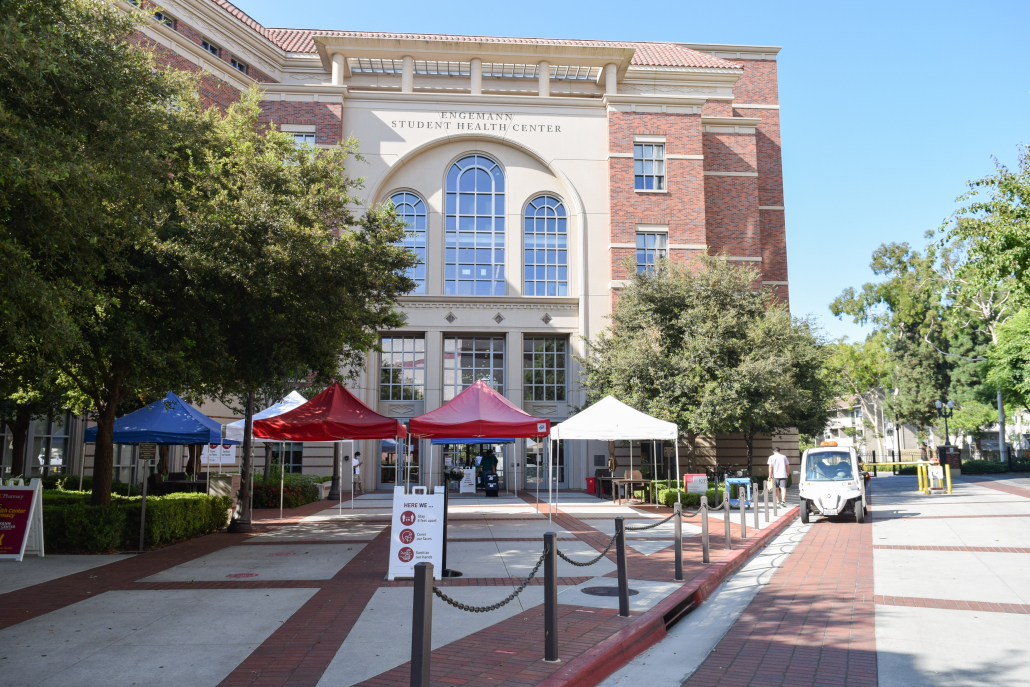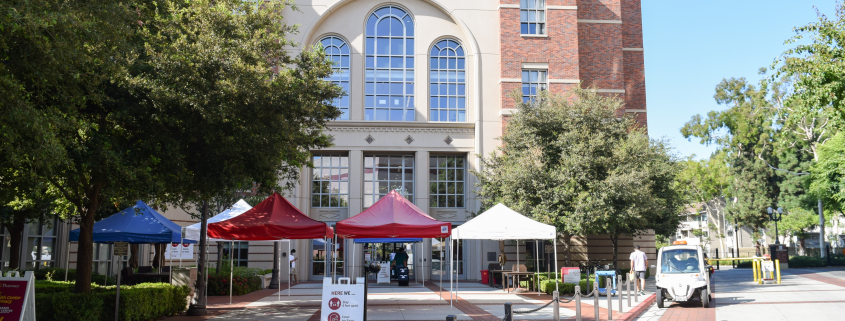About half of students are now boosted

Close to 50% of USC students have received their booster shots, Chief Health Officer Dr. Sarah Van Orman said in a student media health briefing Wednesday. All students who are eligible to receive a booster — eligibility is five months from completing the Pfizer, Moderna or EUL vaccine series, or two months after completing Johnson & Johnson — are required to be boosted by Jan. 30.
Individuals have a one-month grace period to get their booster shot once they become eligible. According to an email from Student Health Wednesday, students who are eligible but not boosted are required to test twice weekly or every four days.
Pharmacies on campus are providing booster shots for all eligible students. There is “plenty of booster availability” at USC right now, as well as in the surrounding community at places such as CVS and Rite Aid, Van Orman said.
As the new semester begins, student rates for influenza vaccinations have reached nearly 90%.
“We have not seen much influenza at all, even to date, which is wonderful. That’s really the goal of having people influenza-vaccinated,” Van Orman said.
As of Wednesday, there are no plans to further delay the return to in-person classes past Jan. 24, according to Van Orman. For students who are immunocompromised, there is a process through the Office of Student Accessibilities Services to request accommodations.
“We also know that these first couple of weeks, while we’re still having high case numbers, are going to require a lot of flexibility for everybody,” Van Orman said.
Van Orman expects there to be high coronavirus case counts among faculty, staff and students alike, until cases start to drop in the community over the next several months. Though plans in the case that faculty members of students become ill will vary depending on the class and school, Van Orman said the University is prepared to allot flexibility in terms of supporting both staff and students who are out sick and need to isolate.
Over 99% of coronavirus cases in the community have been of the omicron variant. Although the Student Health lab is unable to notify students of the variant they contract, Van Orman said the University isn’t seeing anything but omicron in the “aggregate” reporting.
Studies have shown that the omicron variant affects the upper respiratory tract more than the lower respiratory tract, leading it to be more infectious but cause a somewhat less severe disease.
“Given the number of infections, the percentage of people that have severe disease that are ending up hospitalized or dying from omicron is much lower than it was with some of the other variants,” Van Orman said.
As of right now, no students have been hospitalized, which Van Orman said is “likely partially” due to the fact that over 96% of staff, faculty and students are fully vaccinated.
Once a student has tested positive for the coronavirus, they are exempted from further surveillance testing for a 90-day period. Van Orman said that this is because of the likelihood that someone will continue testing positive after their quarantine period and the likelihood of repeat infection is low.
Everyone on campus is required to wear a surgical, KN95 or N95 mask. Surgical grade masks will be provided at all entrances for faculty and students who need them, and KN95 and N95 masks will be available upon request through the USC Bookstore.
Students who test positive while living in campus residence halls are required to quarantine in a hotel, a service provided free of charge. Currently, three hotels provide quarantine spaces for USC students. Students living off campus may also quarantine in one of the hotels to avoid exposure to roommates or neighbors.
As society transitions over the next few months to the coronavirus being an endemic disease, something that circulates and comes seasonally, the community needs to remain safe, according to Van Orman.
“We need to still be able to have this circulate in our community and people be protected and not overwhelm our healthcare systems though, and that’s the point we’re at right now,” Van Orman said.

